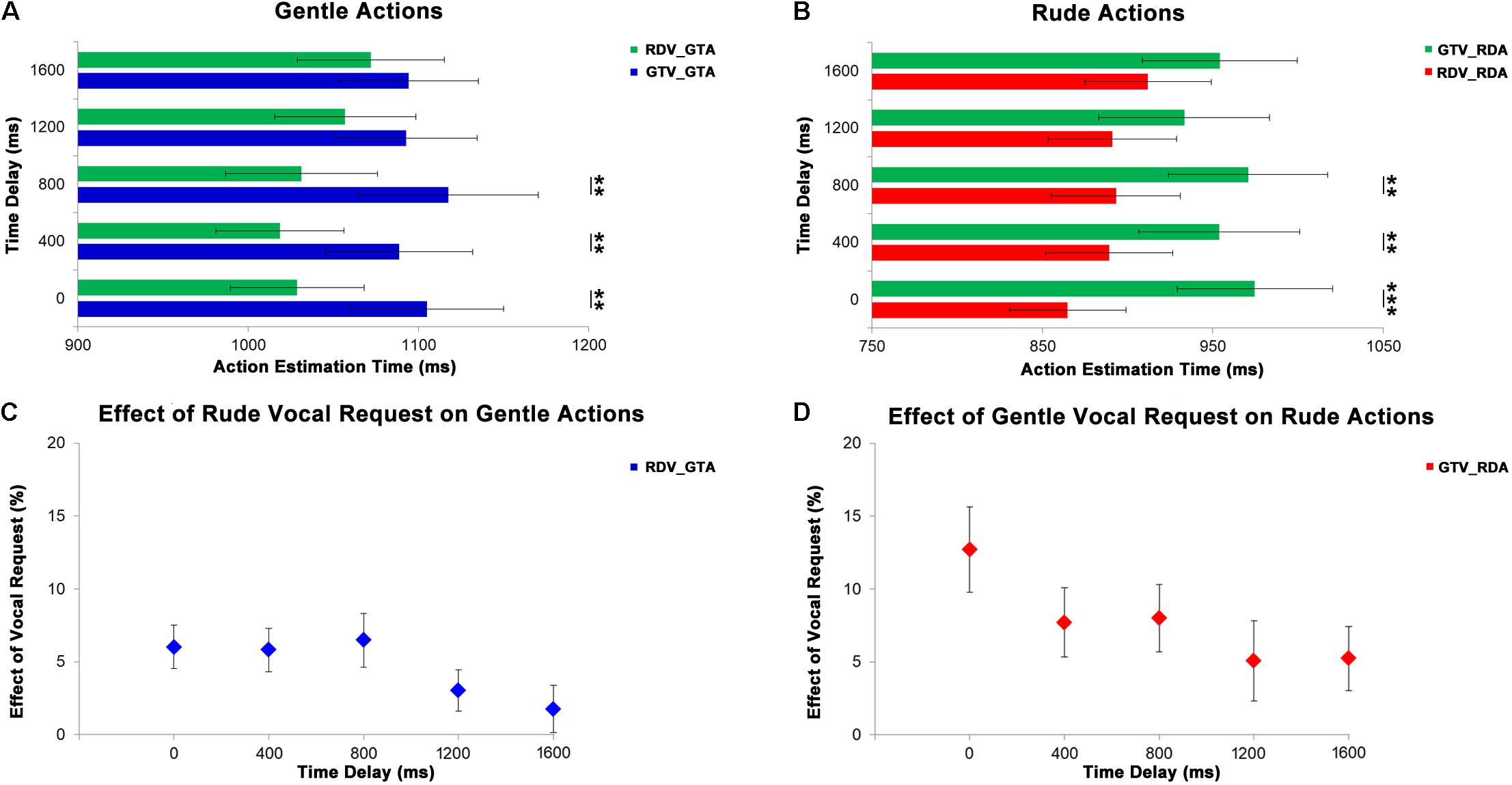Psychophysics Techniques
Psychophysics is the scientific study of the relationship between physical stimuli from the external world and the subjective experiences these stimuli provoke in us. Some of these parameters are the estimation times, absolute threshold, the differential threshold, the sensory acuity, the reaction time, etc. In particular, in the field of neuroscience, it allows us to understand the mechanisms underlying perception. For example, Di Cesare et al. (2021) demonstrated that vocal requests conveying different vitality forms can influence the perception of goal-directed actions, affecting the estimation of action duration. Participants first heard a vocal request (‘give me’) in a rude or gentle tone, then had to observe the initial part of a rude or gentle passing action, continue it mentally and estimate the time of its completion. The results showed that listening to a gentle vocal request increased the estimated duration of an action, while listening to a rude vocal request decreased it. This contagion effect lasts 800 ms and then starts to decay.

Graphs representing the estimated timing of gentle (A) and rude (B) actions. Green bars refer to incongruent conditions: rude vocal request and gentle action (RDV_GTA) in panel (A), gentle vocal request and rude action (GTV_RDA) in panel (B). Blue bars in panel (A) refer to gentle congruent condition: gentle vocal request and gentle action (GTV_GTA). Red bars in panel (B) refer to rude congruent condition: rude vocal request and rude action (RDV_RDA). The graphs below show the effect of rude vocal requests on gentle action estimation (C) and the effect of gentle vocal requests on rude action estimation (D) for five different time delays (0, 400, 800, 1,200, and 1,600 ms). **p < 0.01, and ***p < 0.001. (Di Cesare et al. 2021)
If you want to read more about this topic, click here Article PDF
References
Di Cesare, G., Pelosi, A., Aresta, S. M., Lombardi, G., & Sciutti, A. (2021). Affective contagion: How attitudes expressed by others influence our perception of actions. Frontiers in Human Neuroscience, 15, 712550.